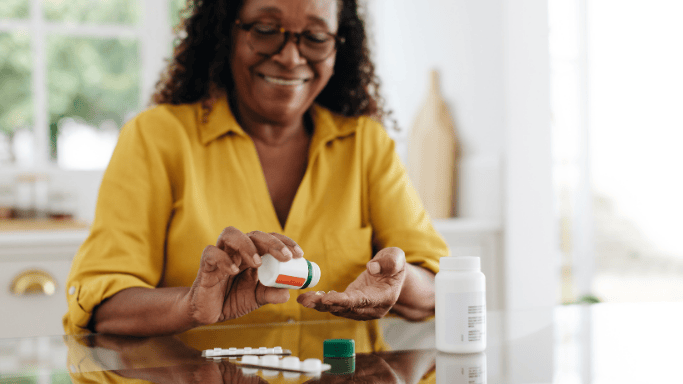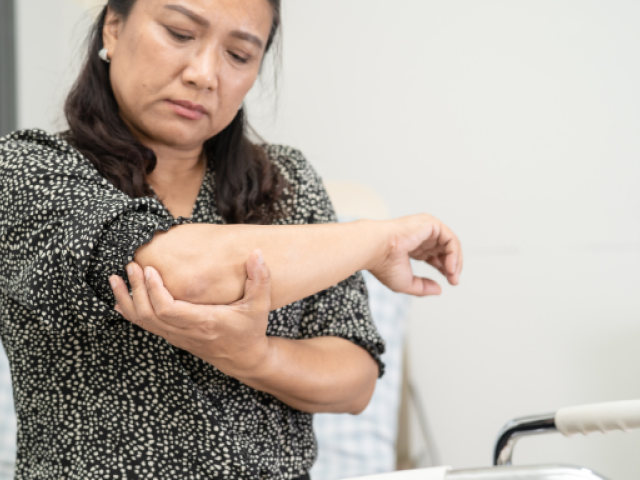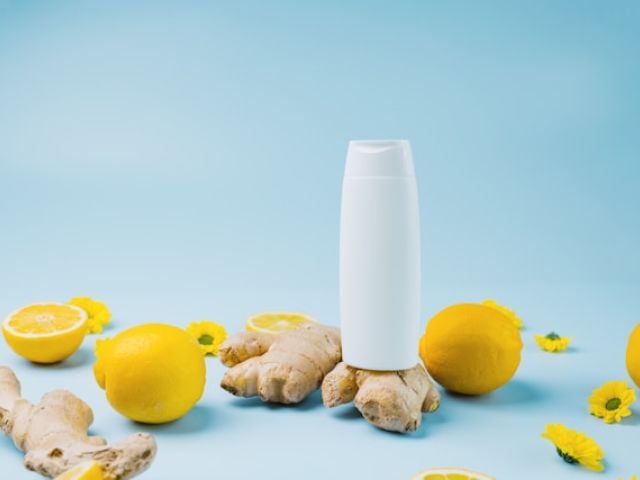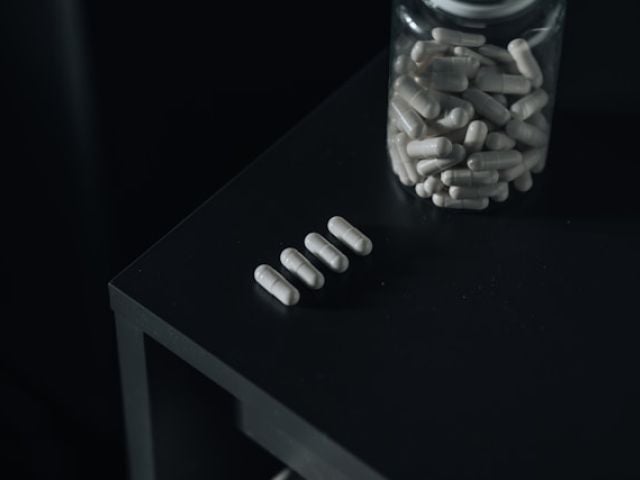
5 Antioxidant Supplements for Oxidative Stress Relief
Your cells face attack every single day. Every breath creates cellular waste products. These byproducts can damage your body from the inside out.
This damage is called oxidative stress. It drives aging and chronic disease. You might feel it as unexplained fatigue or brain fog. These could be early signs that oxidative stress is winning.
If you’re experiencing persistent chronic fatigue, addressing oxidative stress may be an important piece of the puzzle.
Most people accept these changes as normal aging. What if they’re not normal at all? What if you can prevent them?
You can fight back with the right antioxidant approach.
Key Takeaways
- Oxidative stress speeds up aging. Free radicals damage your DNA and cell membranes faster than your body can repair them.
- Multiple antioxidants work better together. The most effective approach combines several antioxidants that support each other.
- Quality matters more than quantity. Look for supplements designed for maximum absorption.
- Testing shows your specific needs. Understanding your current stress levels helps you target what matters most.
What Is Oxidative Stress?
Reactive oxygen species are unstable molecules missing an electron. Think of them as cellular bullies stealing from healthy cells.
Your body makes free radicals naturally during energy production. External factors create even more.
Pollution, UV rays, processed foods, and stress all increase free radical production.
When free radicals outnumber your natural defenses, damage builds up. This imbalance is oxidative stress.
Over time, this damage affects everything.
Your DNA takes hits that can cause mutations. Cell membranes become leaky. Proteins lose their shape and stop working.
The result? Faster aging and higher risk of cardiovascular disease, diabetes, and brain disorders.
Your body has natural defenses. Antioxidant enzymes work around the clock to limit damage.
But these systems decline with age. Today’s world creates more oxidative stress than ever before.
Diet alone often falls short. Even perfect nutrition may not provide enough antioxidants for today’s demands.
This is where a targeted dietary supplement approach becomes valuable. They give your body extra support to restore balance.
Add 20+ Healthy Years to Your Life
Access the same health optimization strategies used by longevity experts. Weekly insights, exclusive products, member pricing.
Top 5 Antioxidant Supplements
Different antioxidants work in unique ways. Each targets specific types of damage.
The best approach combines multiple antioxidants. This creates complete protection against free radical damage.
| Supplement | Primary Benefits | Key Considerations |
|---|---|---|
| Quercetin | Antioxidant protection, clears aging cells, supports cardiovascular health | Poor absorption alone – needs enhancers |
| Curcumin | Dual antioxidant/anti-inflammatory action, DNA protection | Requires piperine for bioavailability |
| Vitamin C | Master antioxidant, regenerates other antioxidants, collagen support | Natural forms with cofactors work better |
| CoQ10 | Energy production, mitochondrial protection, heart support | Ubiquinol form absorbs better than ubiquinone |
| Vitamin E | Cell membrane protection, works with vitamin C | Mixed tocopherols provide broader benefits |
1. Quercetin
Quercetin is a flavonoid found in onions, apples, and berries. It’s one of nature’s strongest antioxidants.
This compound donates electrons to free radicals. This antioxidant effect stops them from damaging your cells.
Quercetin does more than basic antioxidant activity. It also helps clear out damaged, aging cells.
These “zombie cells” build up with age. They pump out inflammatory signals throughout your body. Clearing them reduces chronic inflammation.
Research shows quercetin can lower oxidative stress markers.1 It also provides beneficial effects for immune function and cardiovascular health.2
Studies show quercetin crosses the blood-brain barrier. This makes it valuable for protecting brain cells too.3
The challenge with quercetin is absorption. Your body doesn’t absorb it well alone.
This is why complete formulations matter. Jinfiniti’s SenoAid combines quercetin with other compounds and absorption boosters.
2. Curcumin
Curcumin gives turmeric its golden color. People have used it medicinally for thousands of years.
This compound provides dual action. It neutralizes free radicals directly while boosting your body’s own antioxidant enzymes. These unique antioxidant properties make it especially effective against inflammation.
Curcumin protects you in several ways:
- It blocks inflammation-causing enzymes4
- It lowers oxidative stress markers5
- It protects DNA from damage6
These actions make curcumin powerful against aging and chronic disease. It’s especially effective against the low-grade inflammation that drives aging.
The main challenge is bioavailability. Your liver breaks down curcumin quickly.
Black pepper extract changes everything. Its active compound, piperine, can increase curcumin absorption by up to 2000%.
This is why quality matters in curcumin supplements. Formulations with piperine deliver much better results.
Extra Strength Turmeric+ from Jinfiniti combines curcumin with black pepper. It also includes boswellia, ginger, and quercetin for enhanced anti-inflammatory action.
3. Vitamin C

Most people think vitamin C only boosts immunity. But it’s one of your body’s primary antioxidant defenders.
Vitamin C is water-soluble. It works throughout your body’s fluid systems to neutralize free radicals.
This vitamin also regenerates other antioxidants.7 It recycles vitamin E and helps maintain glutathione levels.
Vitamin C supports collagen production too. This protein needs vitamin C to form properly.
The source of vitamin C matters. Synthetic ascorbic acid provides basic vitamin activity. But it lacks supporting compounds found in whole foods.
Natural vitamin C from sources like amla extract comes with bioflavonoids. These enhance absorption and effectiveness. Different forms of vitamin C in supplements offer varying levels of bioavailability and benefits.
Vitamin C works best with complementary nutrients. One effective partner is zinc.
Together, they provide enhanced antioxidant protection and immune support. That’s why combinations like Natural Vitamin C + Zinc often work better than either nutrient alone.
4. CoQ10 (Coenzyme Q10)
CoQ10 plays a unique dual role in cells. It’s needed for energy production and serves as a powerful antioxidant.
This compound exists in every cell. It concentrates in your heart, brain, and liver – organs with high energy needs.
CoQ10 works inside your mitochondria to help make ATP, your cellular energy currency. It also protects mitochondrial membranes from damage.
Supporting overall mitochondrial health becomes increasingly important as we age and face more oxidative stress.
Research shows CoQ10 levels drop with age.8 By age 60, you may have 50% less CoQ10 than at age 20.
This decline reduces energy production and increases oxidative damage. Supplementation can help restore optimal levels.
Studies show CoQ10 benefits heart health. Supplements may improve exercise capacity and reduce oxidative stress in heart patients.9
CoQ10 also supports brain function. It may help protect against neurodegenerative diseases by reducing brain oxidative stress.
The ubiquinol form of CoQ10 absorbs better than ubiquinone. This is especially important for older adults.
5. Vitamin E

Vitamin E is your body’s primary fat-soluble antioxidant. It protects cell membranes from oxidative damage.
Cell membranes contain fats that are vulnerable to free radical attacks. Vitamin E embeds in these membranes and neutralizes threats.
This vitamin works with vitamin C. When vitamin E neutralizes a free radical, it becomes oxidized. Vitamin C then regenerates vitamin E back to its protective form.
There are eight forms of vitamin E. Alpha-tocopherol gets the most attention. But gamma-tocopherol may be just as important.
Mixed tocopherols provide broader protection than alpha-tocopherol alone.10 They work together to protect different parts of cells.
Natural vitamin E absorbs better than synthetic forms. It also stays in tissues longer.
Good food sources include nuts, seeds, and olive oil. But getting therapeutic amounts through diet alone can be challenging.
Lifestyle Support for Antioxidant Protection

Antioxidant supplements work best with healthy lifestyle habits. Your daily choices impact oxidative stress levels.
- Eat colorful foods: Choose fruits and vegetables rich in natural antioxidants. Berries, leafy greens, and deeply colored vegetables offer the highest amounts.
- Move regularly: Engage in moderate physical activity daily. Intense exercise can temporarily increase free radicals. Consistent moderate activity boosts your body’s antioxidant defenses.
- Prioritize sleep: Aim for 7-9 hours of quality sleep nightly. Deep sleep is when your body repairs oxidative damage. Quality sleep supports natural cellular repair processes that help counteract daily oxidative stress.
- Manage stress: Practice stress-reduction techniques like meditation. Chronic stress raises cortisol, which increases free radical production.
- Consider thermal therapy: Use saunas or cold exposure to activate your body’s adaptive antioxidant responses.
Together, these habits create a powerful daily routine. They help your body stay resilient and protected from oxidative damage.
Your Personal Antioxidant Plan

The best antioxidant strategies combine multiple compounds. Single antioxidants work better when supported by others.
This is called the antioxidant network. Vitamins C and E, CoQ10, and other antioxidants work together for complete protection.
Quality matters in antioxidant supplements. Look for products that include absorption enhancers and supporting compounds.
Third-party testing ensures purity and potency. Avoid products without certificates of analysis.
Bioavailability can make or break supplement effectiveness. Enhanced formulations provide better results than basic versions.
Testing helps you understand your current oxidative stress levels. Biomarker panels measure specific indicators of oxidative damage.
This data lets you create a personalized antioxidant strategy. You can target your specific needs rather than guessing.
Our AgingSOS panels measure multiple markers of oxidative stress, inflammation, and cellular damage. This complete picture guides your supplementation choices.
Regular testing also lets you track progress. You can see whether your antioxidant strategy is working.
Your antioxidant needs may change over time. Age, health status, and lifestyle factors all influence requirements.
A personalized approach ensures you get the right antioxidants in the right amounts. This maximizes benefits while avoiding unnecessary supplementation.
Bottom Line
Oxidative stress speeds up aging and increases disease risk. Your natural antioxidant defenses decline with age while oxidative stress increases.
Smart supplementation can restore balance and protect cells from damage. The five most effective antioxidant supplements work through different mechanisms.
Quercetin provides antioxidant and cellular cleanup benefits. Curcumin offers dual antioxidant and anti-inflammatory action. Vitamin C serves as a master antioxidant that regenerates other protective compounds.
CoQ10 supports both energy production and antioxidant protection. Vitamin E protects cell membranes from damage.
Lifestyle factors greatly impact oxidative stress levels. Supplements work best as part of a complete approach including proper diet, exercise, sleep, and stress management.
Testing helps you understand your current oxidative stress levels and track progress. This allows for personalized supplementation strategies.
The most effective approach combines multiple antioxidants that work together. Quality formulations with enhanced bioavailability provide superior results.
Your antioxidant strategy should align with your broader longevity goals. Reducing oxidative stress is one key component of healthy aging and disease prevention.
Referenced Sources:
- https://www.sciencedirect.com/science/article/pii/S0261561411000264 ↩︎
- https://www.frontiersin.org/journals/cardiovascular-medicine/articles/10.3389/fcvm.2023.1203713/full ↩︎
- https://pubmed.ncbi.nlm.nih.gov/21302433/ ↩︎
- https://pmc.ncbi.nlm.nih.gov/articles/PMC8572027/ ↩︎
- https://www.frontiersin.org/journals/pharmacology/articles/10.3389/fphar.2025.1517174/full ↩︎
- https://pubmed.ncbi.nlm.nih.gov/21332098/ ↩︎
- https://www.sciencedirect.com/science/article/pii/S0002916522044136 ↩︎
- https://pmc.ncbi.nlm.nih.gov/articles/PMC6627360/ ↩︎
- https://www.tandfonline.com/doi/full/10.1080/13813455.2025.2507746 ↩︎
- https://pubmed.ncbi.nlm.nih.gov/11846411/ ↩︎

Get weekly health insights and exclusive offers by joining our newsletter.












